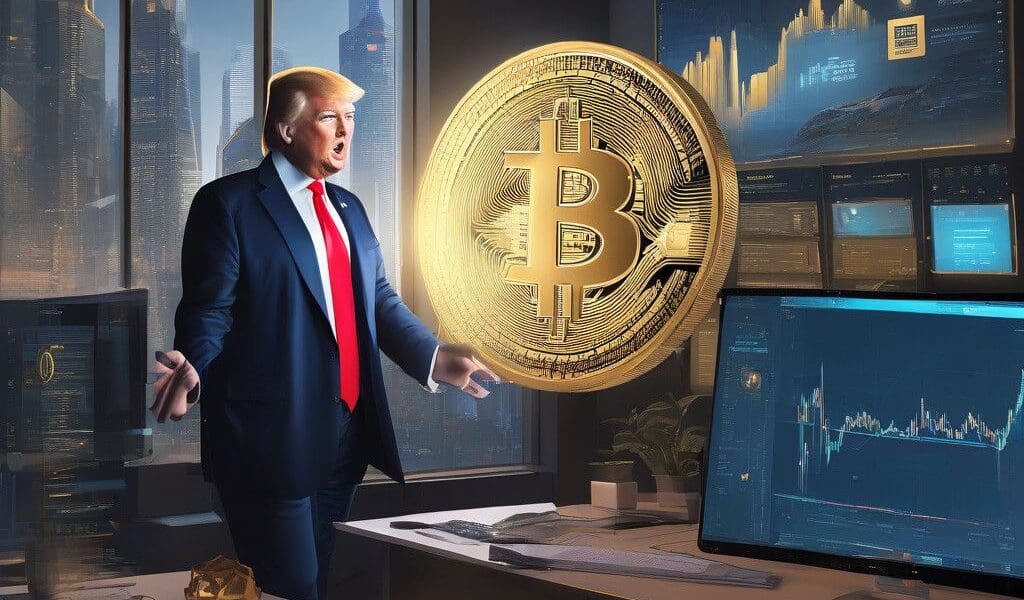Trump's New Cryptocurrency Venture: What You Need to Know
Donald Trump has recently made headlines by unveiling his new cryptocurrency business, World Liberty Financial. The announcement, made during a live event on X Spaces, attracted attention not only for the novelty of the venture but also because of the former president’s unusual pivot towards the digital finance world. While Trump previously expressed skepticism toward cryptocurrencies, his latest initiative suggests a significant shift in mindset as he positions himself to capture the growing cryptocurrency market.
World Liberty Financial aims to appeal to cryptocurrency advocates and crypto entrepreneurs. However, details about the company’s operational structure, financing, and specific offerings are sparse, raising questions and a bit of skepticism among industry insiders.
Timing is always critical in politics, and the launch just ahead of the upcoming election indicates a strategic move to court tech-savvy voters. Trump’s promise to transform the United States into the “crypto capital of the planet” is bold, signaling a commitment to minimal regulation and the establishment of a national bitcoin reserve. This aligns with his broader goal of attracting a new demographic to his re-election campaign, particularly younger voters who have an interest in digital assets.
Trump’s two sons, Eric and Donald Jr., have taken on active roles in promoting World Liberty Financial, describing it as a project that could revolutionize digital asset finance. Their enthusiasm is evident, but the lack of substantive details regarding the functionality and rollout of World Liberty Financial raises potential red flags. Industry veterans know that clear operating strategies and transparent management are essential for any new financial venture to gain credibility and traction.
For context, let’s examine what makes cryptocurrencies appealing at this juncture. The cryptocurrency market has matured rapidly over the last few years, with a growing number of investors looking for alternative assets amid economic uncertainties. Bitcoin, for example, has evolved into a store of value for many, drawing comparisons to gold. This rise has not gone unnoticed by politicians and former leaders who recognize the potential for capturing votes in a rapidly digitalizing economy.
The reaction from the cryptocurrency community has been mixed. While there are proponents eager to see mainstream political figures embrace digital currencies, skepticism prevails regarding Trump’s true understanding of the cryptocurrency landscape. His earlier claims about banning Bitcoin and his administration’s regulatory approach have led some to question whether this new venture is genuine or merely a political maneuver.
In practice, for World Liberty Financial to succeed, it must address several key areas:
1. Regulatory Compliance: Cryptocurrency ventures operate in a complex regulatory environment, and ensuring compliance with both state and federal laws is critical. The promise of minimal regulation might attract initial interest but could also present long-term risks.
2. User Trust and Adoption: Gaining trust in a new financial product generally requires transparent operations, competitive advantages, and a clear value proposition. Without these, attracting and retaining users will be a challenge.
3. Technological Robustness: Security is a significant concern in the cryptocurrency space, as breaches can lead to massive financial losses. World Liberty Financial must demonstrate a robust technological infrastructure to protect user investments.
4. Educational Outreach: Many potential users are still unfamiliar with cryptocurrencies and how they operate. Effective educational marketing will be essential in driving adoption and usage, especially given Trump’s inconsistent past statements on the subject.
5. Market Saturation: The cryptocurrency market is already flooded with countless players, from established entities like Coinbase and Binance to an array of startups. World Liberty Financial will need to carve out a niche to compete in this crowded landscape.
Ultimately, Trump’s entry into the cryptocurrency arena reflects the growing intersection of politics and digital finance, and it suggests that cryptocurrencies have entrenched themselves as a significant aspect of modern discussions on economic policy. As World Liberty Financial takes shape, it will be critical for stakeholders and potential customers alike to stay informed, as developments unfold at a vigorous pace.
The move is emblematic of larger trends shaping the future of finance. With crypto advocates closely watching how this venture evolves, the implications for Trump’s campaign and the digital finance landscape are still unfolding. Will he successfully engage the cryptocurrency community, or will skepticism prevail?








